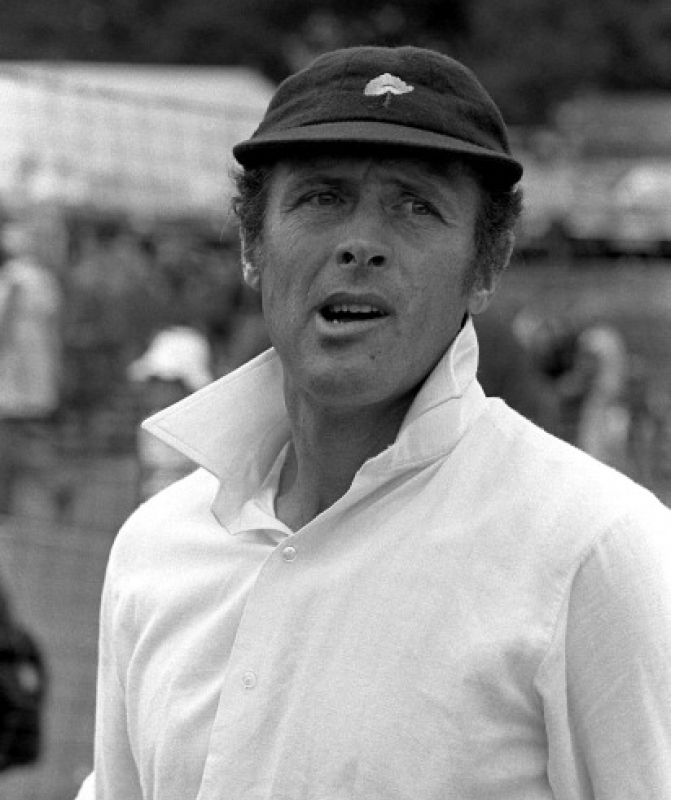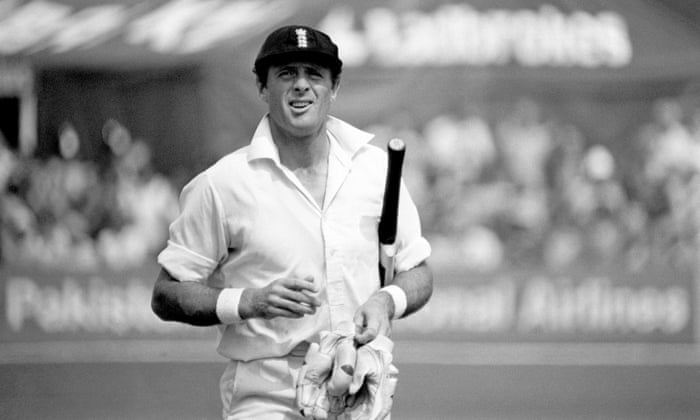Yorkshire and England opening batsman Geoffrey Boycott polarized opinions in playing 108 Tests over 25 years. Yet his perennial run-scoring consistency remained unquestioned after facing the first ball in over 800 innings domestically and internationally.
Bred on grit from a mining upbringing, Boycott’s intense dedication saw him compile 48,426 first-class runs, comfortably passing 100 on 151 occasions through his technically-immaculate style framed around unwavering patience.
Article Highlights
Hide- Geoff Boycott was born on October 21, 1940, in Fitzwilliam, Yorkshire, and grew up in a working-class family in a coal mining community.
- He had a successful domestic cricket career, playing for Yorkshire County Cricket Club and earning a reputation for his consistency and technical prowess.
- Boycott had an impressive international career, achieving his 100th first-class century, amassing 8,114 runs in Test cricket, and showcasing exceptional skill and determination.
- His notable batting performances, including his match-saving 246 not out against India in 1967, have influenced cricketing tactics and made him a blueprint for opening batsmen.
Though his frank punditry attracts criticism today almost matching the England selectors he baited as player, Boycott’s successful Ashes returns as captain and batting lynchpin captured fans’ hearts, forging a heroic status in Yorkshire.
His career embodied the club’s no-nonsense, blunt-speaking qualities – attributes mirrored in Boycott’s determination to keep the scoreboard steadily ticking.
Early Life and Background
Geoffrey Boycott was born on October 21, 1940, in the village of Fitzwilliam, West Yorkshire. He grew up in a working-class family that laid the foundation for his robust and determined approach to the game of cricket.
The socioeconomic conditions of his upbringing in a mining community were instrumental in shaping his resilient character and his uncompromising pursuit of excellence on the cricket field.
Colin Milburn
Hailing from a North-East coal mining upbringing, Colin ‘Ollie’ Milburn became ... Read More
Boycott’s early exposure to cricket was at the local level, where the game was more than a pastime—it was a cultural fixture. This environment honed his skills and instilled in him the values of hard work and perseverance.
Attending Hemsworth Grammar School, Boycott demonstrated not only academic proficiency but also a prodigious talent for cricket.
His schoolboy cricket exploits were marked by a meticulous attention to technique and an unwavering focus on personal performance.
Analyzing Boycott’s early life reveals a confluence of factors that contributed to his later success. He had a supportive family, a cricket-loving community, and access to competitive school cricket.
These factors, coupled with his innate determination, fostered a cricketing ethos that would eventually be reflected in his storied career.
His career was characterized by both remarkable achievements and a singular playing style that emphasized individual liberty and expression within the sport.
Domestic Cricket Achievements
In a career spanning more than two decades, Boycott amassed an impressive record in domestic cricket, distinguishing himself as a prolific run-scorer for Yorkshire County Cricket Club.
His tenure with Yorkshire was marked by unwavering consistency and technical prowess, which solidified his reputation as one of the most formidable batsmen in the club’s storied history.
Boycott’s domestic achievements are characterized by his accumulation of runs and centuries, which contributed significantly to Yorkshire’s successes during his era.
His analytical approach to batting, combined with a meticulous technique, allowed him to compile runs with remarkable efficiency.
This methodical style not only garnered individual accolades but also fortified Yorkshire’s batting lineup, often anchoring innings and setting platforms for competitive totals.
Boycott’s contributions were not limited to his batting; his sharp cricketing mind was a strategic asset to Yorkshire’s leadership throughout his career.
Boycott’s domestic record is a testament to his enduring skill and dedication to the sport. It reflects a career built on discipline and an unyielding commitment to excellence, qualities that endeared him to cricket aficionados and ensured his lasting legacy in the annals of Yorkshire and English domestic cricket.
Geoffrey Boycott: International Career Highlights
Transitioning from domestic to international cricket, Geoff Boycott’s career was no less illustrious, marked by a series of standout performances that cemented his status as one of England’s premier opening batsmen.
His technical proficiency and unwavering concentration at the crease were his trademarks, contributing significantly to England’s batting solidity.
Analyzing Boycott’s international career, several highlights emerge:
- Milestone Century: Boycott’s 100th first-class century was a historic moment, achieved in an Ashes Test against Australia at Headingley in 1977. This century was not just a personal milestone but also a testament to his longevity and consistency at the highest level.
- Prolific Scoring: Over the course of his career, Boycott amassed 8,114 runs in Test cricket at an impressive average of 47.72. His ability to accumulate runs against the world’s best bowlers underlined his mastery of the batting craft.
- Resolute Performances: His resolute 246 not out against India in 1967 showcased his appetite for big scores. However, this innings was also met with criticism for its slow pace, highlighting the often debated aspect of Boycott’s play—his prioritization of personal achievement over team needs.
Boycott’s international career, analyzed objectively, reflects a player of exceptional skill and determination, whose contributions to the game were significant, even as they occasionally sparked controversy over his batting approach.
Notable Batting Performances
Moving beyond the broad strokes of Geoff Boycott’s international cricket highlights, a closer examination of his individual batting feats reveals a series of performances that not only defined his career but also left an indelible mark on the annals of the sport.
Boycott’s meticulous approach to batting was evident in the way he constructed his innings with a blend of technical proficiency and mental resilience.
One standout performance was his match-saving 246 not out against India in 1967 at Headingley. This marathon knock was a masterclass in concentration and patience, showcasing his ability to anchor the innings while accumulating runs against a persistent bowling attack.
Equally significant was his 108 in the 1979 World Cup against Australia, a display of Boycott’s adaptability to the one-day format, blending his defensive solidity with a more assertive stroke play.
Another highlight was his century in the fourth Ashes Test in 1977 at Headingley, where he crafted a disciplined 191, steering England to a commanding position. This innings was emblematic of Boycott’s penchant for playing the long game, wearing down bowlers with his unwavering focus.
Boycott’s batting performances, characterized by their technical rigor and strategic acumen, have become a blueprint for opening batsmen, meriting thorough analysis for their impact on cricketing tactics and lore.
Geoffrey Boycott: Controversies and Legacy
Despite his remarkable achievements on the cricket field, Geoff Boycott’s career was not without controversy, which, along with his substantial legacy, has sparked considerable debate among cricket enthusiasts and historians alike.
His controversies include:
- Conviction for Domestic Assault: In 1998, Boycott was convicted in a French court for assaulting his then-girlfriend. This incident significantly tarnished his reputation and has often been cited in discussions about his character outside of cricket.
- Accusations of Selfish Play: Throughout his career, Boycott faced criticism from some quarters for his extremely cautious batting style. Critics argued that his approach was often more about personal milestones than the team’s needs, fostering a degree of resentment among teammates and fans.
- Racial Comment: Boycott was heavily criticized for an inappropriate comment in 2017 regarding knighthoods awarded to West Indian cricketers, which was perceived as racially insensitive. This led to public outrage and damaged his standing within the cricketing community.
Analyzing Boycott’s legacy, it is clear that his contributions to cricket are significant. He is remembered for his technical proficiency and monumental willpower at the crease.
However, his legacy is complicated by the aforementioned controversies, which have led to a nuanced view of his impact on the sport.
Boycott’s story serves as a reminder that sporting prowess does not exempt individuals from critical scrutiny of their actions both on and off the field.
Final Thought
In conclusion, Geoff Boycott’s career, marked by exceptional domestic achievements and significant international contributions, has left an indelible mark on the cricketing world. His notable batting performances exemplify a mastery of technique and an unwavering dedication to the sport.
However, his career has not been without controversy, which has sparked debate and contributed to a complex legacy. Boycott’s influence on the game is underscored by a record that speaks to both his prowess and the contentious aspects of his tenure in cricket.

















